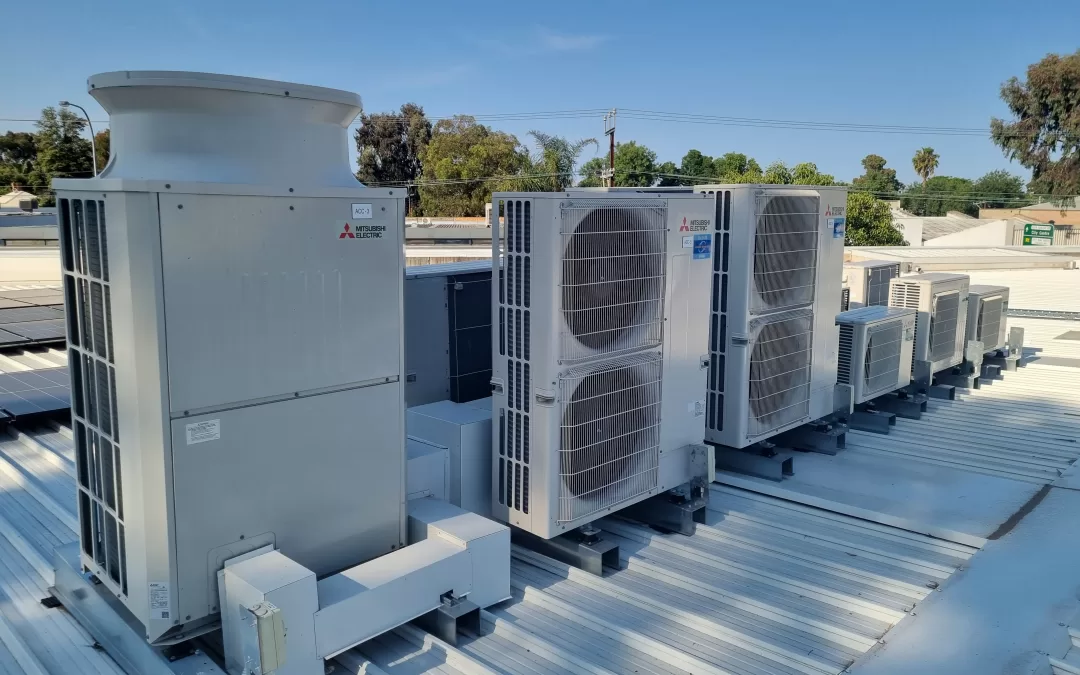Your Overview to Choosing the Right HVAC System for Your Demands
Selecting a proper HVAC system is an important decision that can dramatically impact convenience and power effectiveness in your home. In addition, comprehending the various types of systems offered and their power ratings can assist guide your option.
Recognizing Heating And Cooling System Kind
When selecting an a/c system, it is vital to comprehend the numerous types offered to fulfill your specific requirements. The key categories of heating and cooling systems consist of air conditioning systems, ductless mini-split systems, heatpump, and heating system systems.
Air conditioning systems are designed to cool several areas using ductwork to distribute conditioned air. They are excellent for bigger homes needing constant temperature level control. Ductless mini-split systems, on the other hand, give adaptability and performance, as they enable zoning capabilities, making it possible for individual area temperature level law without the requirement for ductwork.
Warm pumps operate by transferring heat instead than creating it, making them an energy-efficient option for both home heating and cooling. Alternatively, heating system systems use burning to create heat, using either electrical energy, gas, or oil.
Each system has distinctive advantages and factors to consider, consisting of setup requirements, maintenance, and general prices. Comprehending these kinds will assist house owners make notified choices based on their particular requirements, climate, and budget restraints, inevitably guaranteeing ideal comfort and effectiveness.
Examining Power Efficiency
Power performance is a vital factor in the choice of a HVAC system, as it directly affects both energy costs and ecological sustainability. The Seasonal Energy Effectiveness Proportion (SEER) and the Home Heating Seasonal Performance Element (HSPF) are essential indicators for air conditioning systems, representing their effectiveness over a regular cooling and heating period, specifically.
In addition, seek systems that have earned the power STAR tag. This certification represents that the equipment fulfills rigorous power efficiency standards established by the united state Epa. Think about the system's variable-speed technology, which allows for a lot more reliable procedure by readjusting the result to match need, even more enhancing energy savings.
Moreover, appropriate insulation and air duct sealing can dramatically influence the system's overall efficiency. In summary, selecting an energy-efficient heating and cooling system not only reduces your energy bills but likewise adds to a much more lasting environment, making it a necessary factor to consider in your purchasing procedure.
Assessing System Dimension
Picking the ideal dimension for a cooling and heating system is critical to making certain optimum efficiency and performance. A small system may struggle to maintain desired temperature levels, causing boosted deterioration, higher energy intake, and lessened convenience. On the other hand, an oversized system can lead to quick biking, which not only causes inefficiencies yet likewise impacts humidity control and air top quality.
To examine the optimal sizing, it is necessary to conduct a lots estimation, which thinks about factors such as the square video of the area, insulation levels, home window sizes, and local environment conditions - furnace repair. This calculation aids identify the British Thermal Devices (BTU) needed for heating and air conditioning. Furthermore, it is vital to represent specific demands, such as the number of owners and the existence of heat-generating appliances

Setup Expenses and Budget
A detailed understanding of installment prices is crucial for companies and property owners thinking about a brand-new cooling and heating system. The total expense of installation can vary widely based on several elements, including the type of system, the intricacy of installation, and the location of the residential or commercial property. Usually, setup expenses can range from $3,000 to $10,000, depending upon the system's size and efficiency.
When budgeting for a heating and cooling system, it is important to think about not only the initial installation prices but additionally any type of additional expenses that may arise, such as ductwork alterations, electric upgrades, or authorizations. Furthermore, it is a good idea to acquire multiple quotes from licensed HVAC contractors to make certain affordable prices.
Property owners ought to also consider the possible lasting financial savings linked with energy-efficient systems. While the upfront costs might be higher, energy-efficient models can bring about considerable cost savings on utility costs in time.

Maintenance and Long Life Considerations

Correct upkeep consists of regular assessments, filter substitutes, and cleansing of ducts and coils (furnace installation). Ignoring these tasks can result in reduced efficiency, enhanced energy costs, and premature system failure. Home owners should also think about the accessibility of service agreements, which commonly supply scheduled maintenance and concern service, ensuring that the system continues to be in peak problem
Durability varies by system kind; as an example, well-kept central air conditioning units can last 15 to two decades, while warm pumps may have a lifespan of 10 to 15 years. Picking a system with a strong reputation for integrity, in addition to buying regular upkeep, can considerably enhance the system's longevity. Furthermore, going with higher-efficiency versions may lead to lasting savings on power expenses, stabilizing the preliminary investment with time.
Final Thought
In conclusion, selecting a proper Cooling and heating system necessitates careful factor to consider of numerous dig this factors, including system types, energy performance, and dimension. Inevitably, a well-informed decision will improve comfort and performance blog here in household environments while taking full advantage of power financial savings.
Picking an ideal HVAC system is a crucial decision that can significantly affect comfort and power effectiveness in your home.Power effectiveness is an essential variable in the option of a HVAC system, as it directly impacts both energy prices and ecological sustainability. The Seasonal Power Performance Proportion (SEER) and the Home Heating Seasonal Performance Element (HSPF) are crucial signs for air conditioning systems, representing their effectiveness over a common cooling and heating period, specifically. Picking Visit This Link a system with a solid online reputation for integrity, along with spending in routine maintenance, can considerably enhance the system's resilience.In conclusion, picking an ideal A/c system requires careful consideration of numerous aspects, including system types, power effectiveness, and size.